Hookers and Flapjacks
Not so long ago, R and I went down to LA to visit my dad, her grandpa. The next morning, we picked him up and went to Dupars for pancakes. We always went to Dupars for pancakes — my dad had been going to Dupars for apple pie since he was dating my mom in the 1950s.
Dupars was busy that morning, and so, while my dad waited for his short stack, nursing a carefully constructed and maintained cup of chamomile tea, he started answering R’s questions about how he ended up in Los Angeles.
R hit record on her phone and we both heard the whole story for the first time:
I had no money, I had no job, so my check came on the 24th of December, and I, I said … GOODBYE!
The check was $200 and it was my dad’s mustering out pay from his time in the Army towards the end of WWII. His older sister, my Aunt Ruth, drove him down down to the Pittsburgh bus station, waved goodbye as the bus pulled out, and a week later he pulled into downtown LA.
He was 19.
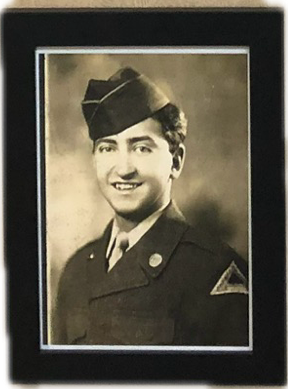
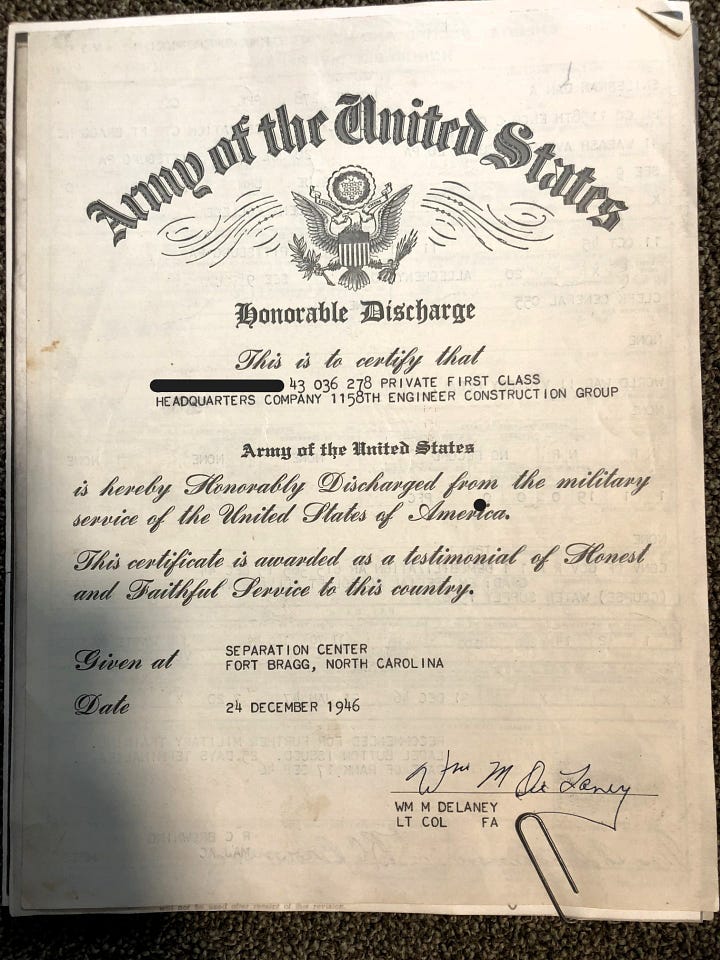
My dad had joined the Army two years earlier, right after he graduated from High School. His big brother, my Uncle John, served as a marine in the Pacific. Here they are together, before my uncle was deployed.
My dad was placed in the Army Corps of Engineers as a water purification specialist. He got sick training in the woods in the winter, but it wasn’t diagnosed until he went home for a final visit before deployment overseas. The local Pittsburgh hospital diagnosed him with rheumatic fever. So the army shipped him off to a temporary military hospital in Georgia where he spent the next six months recovering.
The illness affected his heart, leaving him with a damaged valve and a heart murmur. The doctors told him to go to a warmer climate. LA beckoned. That valve had to be replaced twice; last week I shared the story of the surgeon who magically fixed it the second time, when he was 95.
There’s a pause in the story when my dad gets his short stack, but after some focused pancake time, he picks it back up, sharing the drama that preceded his departure.
While he hoped for warmer climates, the reason he took off so suddenly was because of a blowup with his mom. She was overbearing and had steamed open his discharge papers and check while he was out. When he confronted her, she got caught in her denials, because she had put the letter back in the envelope backwards and then resealed it, so the address was no longer visible. That big fight was the culmination of simmering tensions between the two of them, so he took off, leaving not only her, but his entire extended family behind to start fresh.
We (R and I) thought getting on that bus at 19 with a bad ticker and no prospects was a crazy leap. But then I started digging into the emigrant story of his dad, my grandpa Nathan, and learned he left his family for a journey from Russia to the US, when he was only 15 years old.
Nathan came from a region in Russia that today is Belarus. Jews had long been persecuted in Russia, relegated to a region called The Pale of Settlement1, forced to live in poverty and subject to ongoing pogroms (state-sponsored mob attacks against Jews). Nathan was part of a wave of millions of Jews who fled persecution and violence in Russia, hoping for a new start in the United States.
Nathan came over in 1905. He got on a train from Russia to Rotterdam where he bought a 3rd class ticket (below deck, or steerage) on the SS Noordam to NYC. He came through Ellis Island, where I found immigration docs with his stated profession of tailor, taking the name Sneiderman (Yiddish for Tailor), with $20 in his pocket.
The journey took a couple of weeks, and I hope he had friends or family waiting for him. He met my grandma Clara who had a similar emigrant story and they married in the 1920s. They raised three kids running a combination tailor/grocery store through the Great Depression.
This brings us to the hookers and it’s probably not what you think. My mom and dad bought a house in Hollywood, that was sandwiched between Sunset and Hollywood boulevard. A lot of wannabee actresses traveled far to Hollywood and ended up working Sunset Boulevard when their acting career didn’t pan out.
My dad saved his change in an old wooden shaving dish in a kitchen drawer. On weekends, I would raid it, filling my pockets with quarters to feed the video games down at the 7-Eleven on Sunset. The 7-Eleven was also a popular break spot for the prostitutes where they’d get a Slurpee and play some Pac-Man. While I preferred Galaga, hanging out with them added to the allure.
Money was always tight in our family, but my dad kept that change dish stocked, secretly funding my 7-Eleven arcade habit. Neighbors would call Hollywood vice and the cops would sweep the prostitutes out of our area — only to have them pop back up a few blocks away, like whack-a-mole.
After I went away to college, they ended up back down at our 7-Eleven, and when my dad walked down every morning for the paper, he’d tell me how the prostitutes would sometimes follow him home. He’d listen to them, offer advice, and sometimes a buck or two for a Slurpee or a round of Ms. Pac-Man.
My dad got his BS in Library Science from UCLA on the GI Bill, driving a yellow cab, living on peanut butter. When a career as a librarian didn’t pan out, he went back to USC and got his Masters in Social Work. He worked as a social worker his entire career, counseling delinquent girls, helping couples stay married, helping kids choose custody through divorce battles.
My dad would have turned 98 tomorrow, I was lucky to know him 97 years. People fascinated him, and even at the end he loved to listen and talk through your problems; I think it was the pancakes (and R) that got him to talk about his.
This is where the term ‘Beyond the Pale’ comes from.


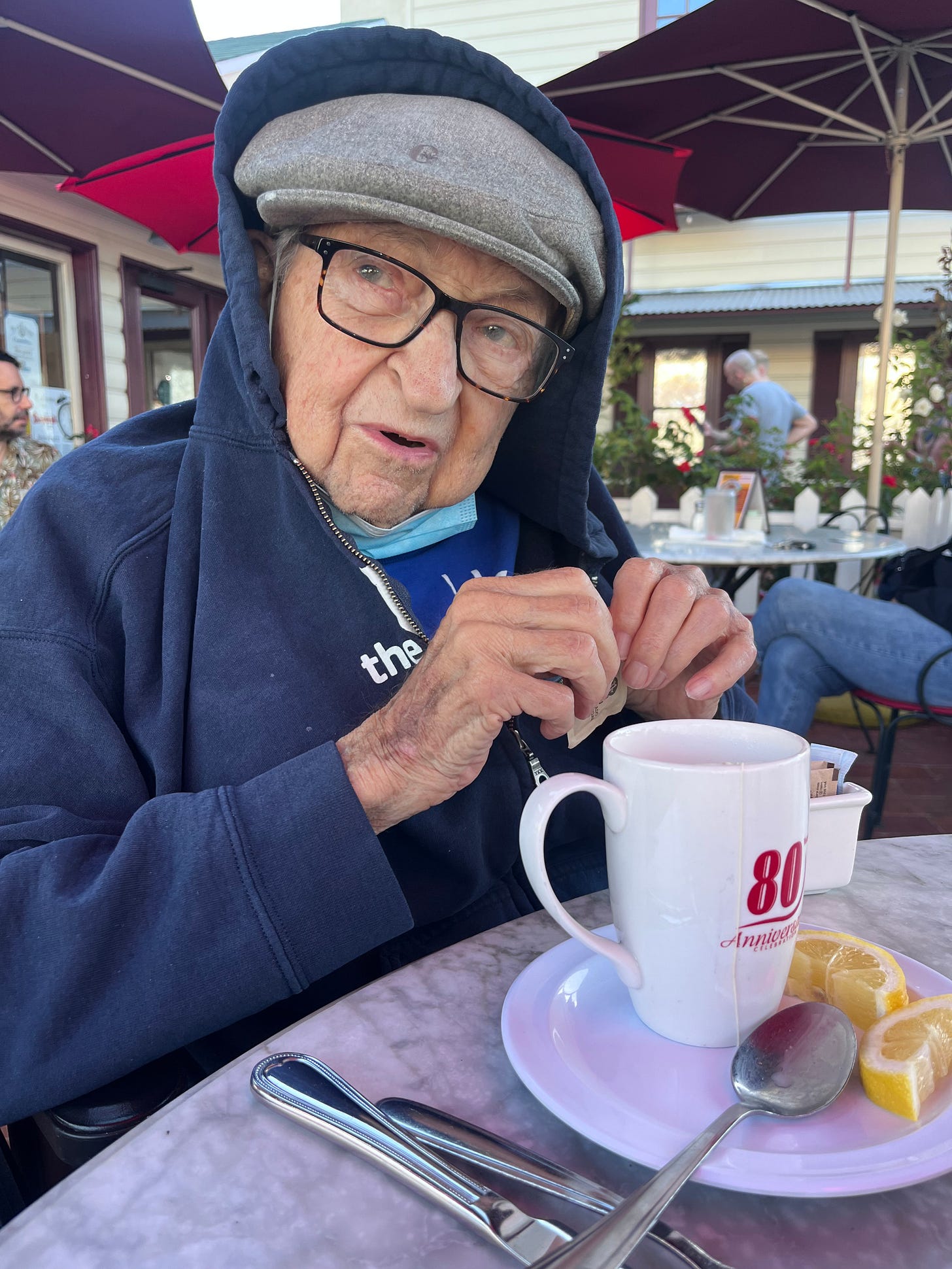
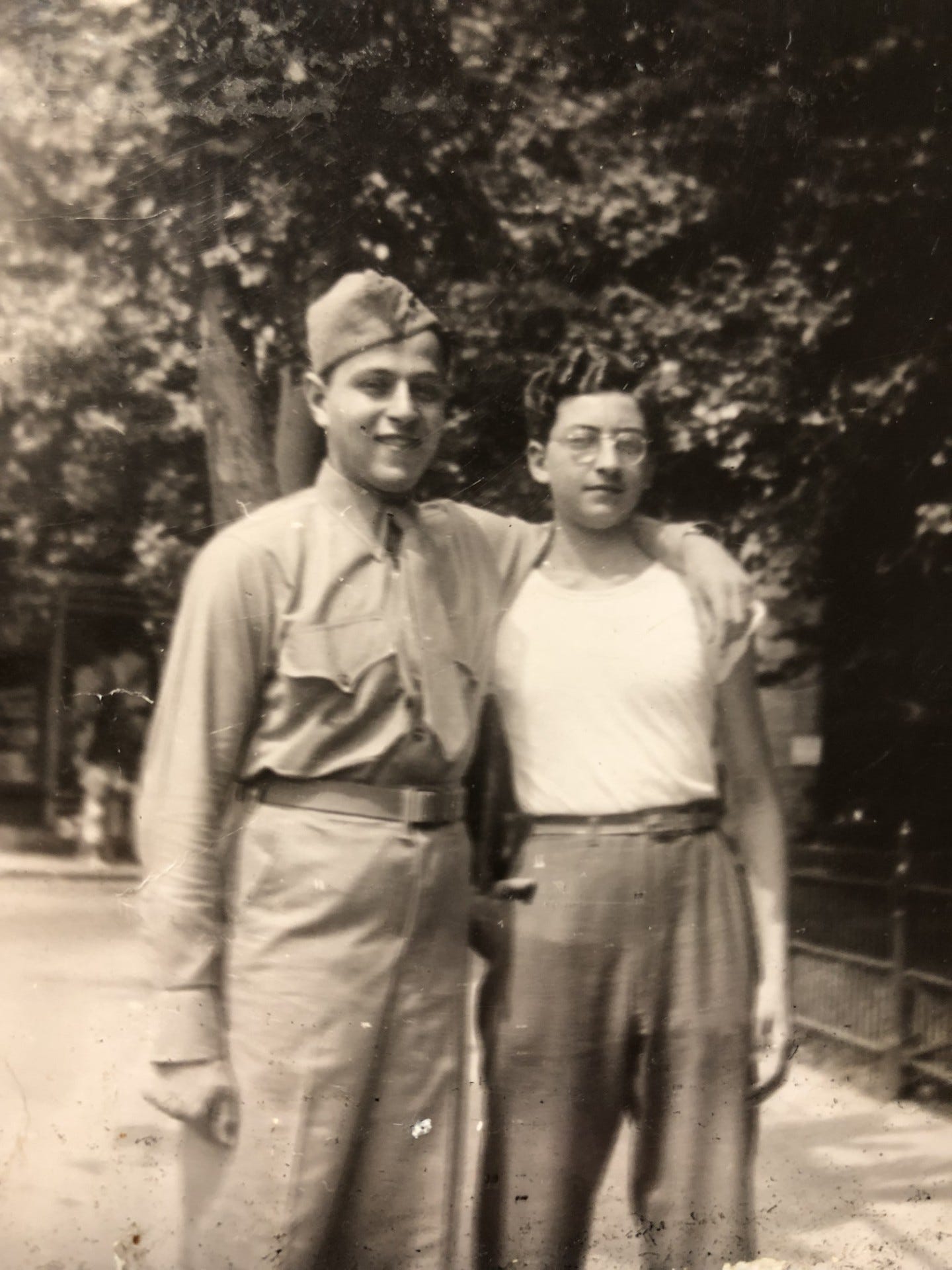
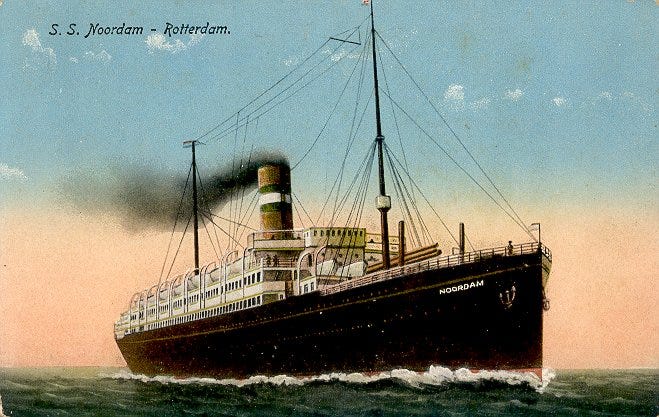
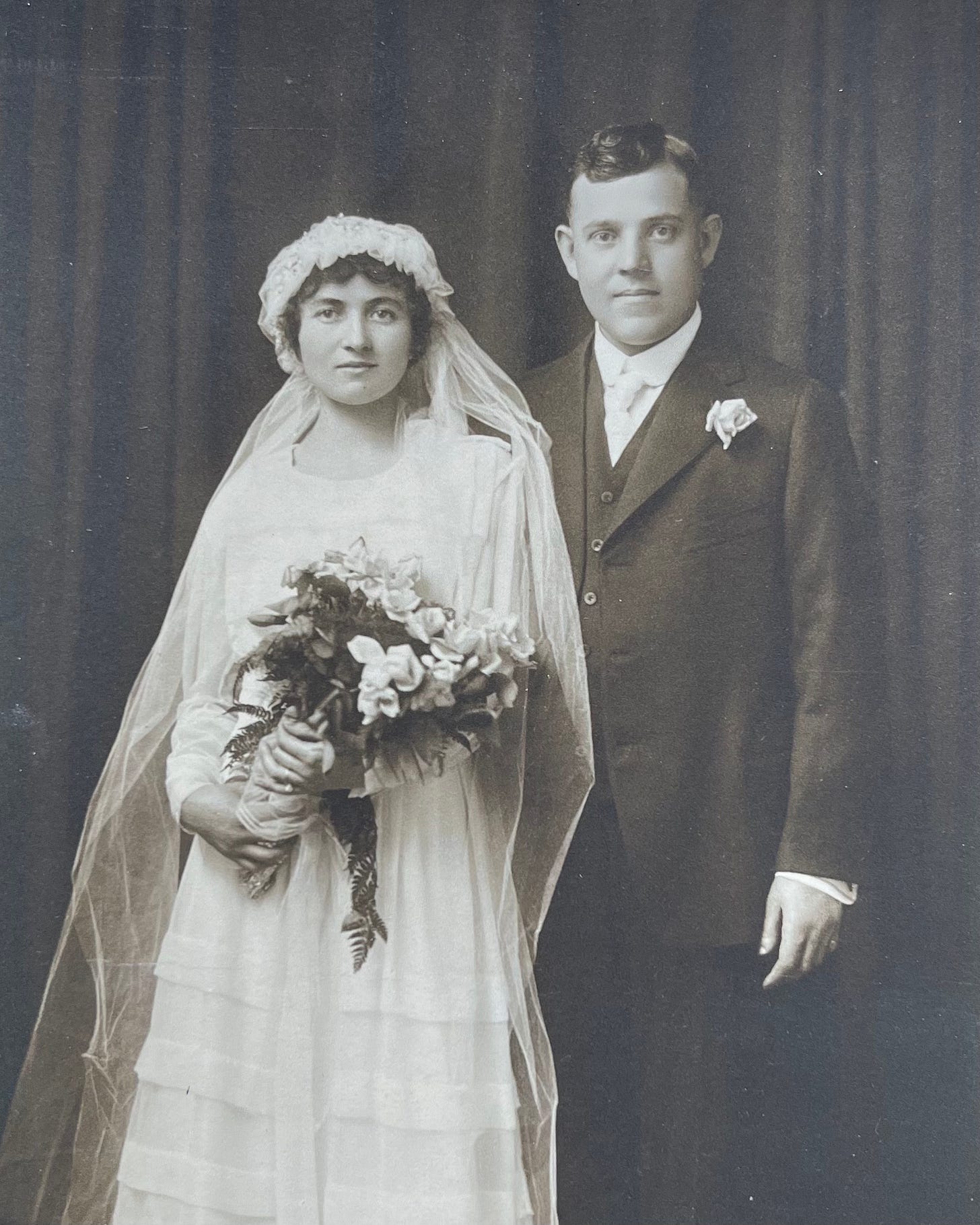
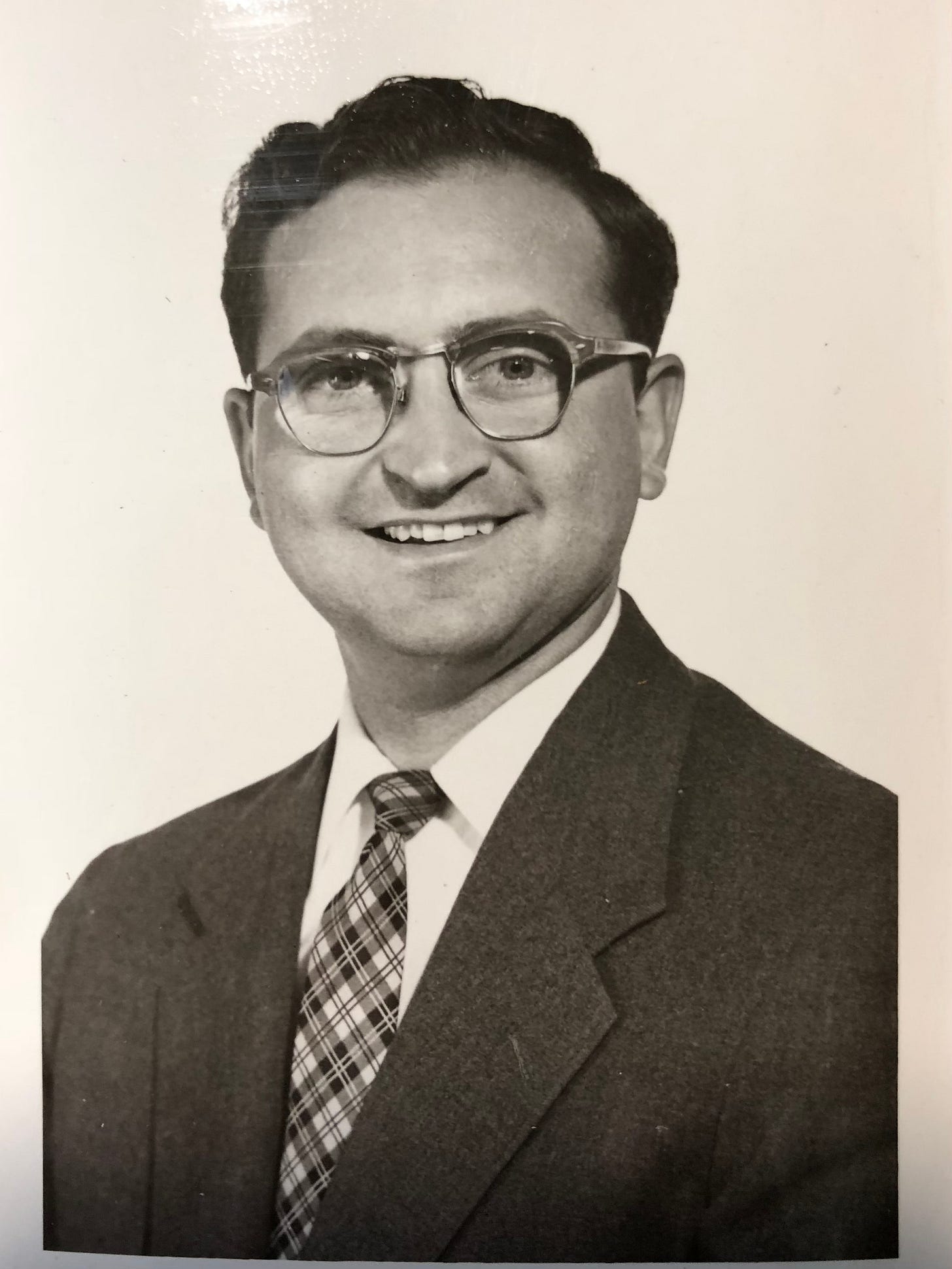
Great story! 15 years old... so dumb, so young, and so fearless. I think your grandfather had a huge dose of courage to boot, but that external motivation no doubt expedited the decision.
Galaga is just so much better than Pac Man (though I would argue that Ms Pac Man is on par). I would have played Galaga too.
That was great that your dad opened up. You learned a lot about your family history. What your family, and most families that emigrated or were brought here went through in their lives can be heart wretching. However, their experiences need to be learned to show what life was really like and the injustices they endured, that are rarely mentioned.